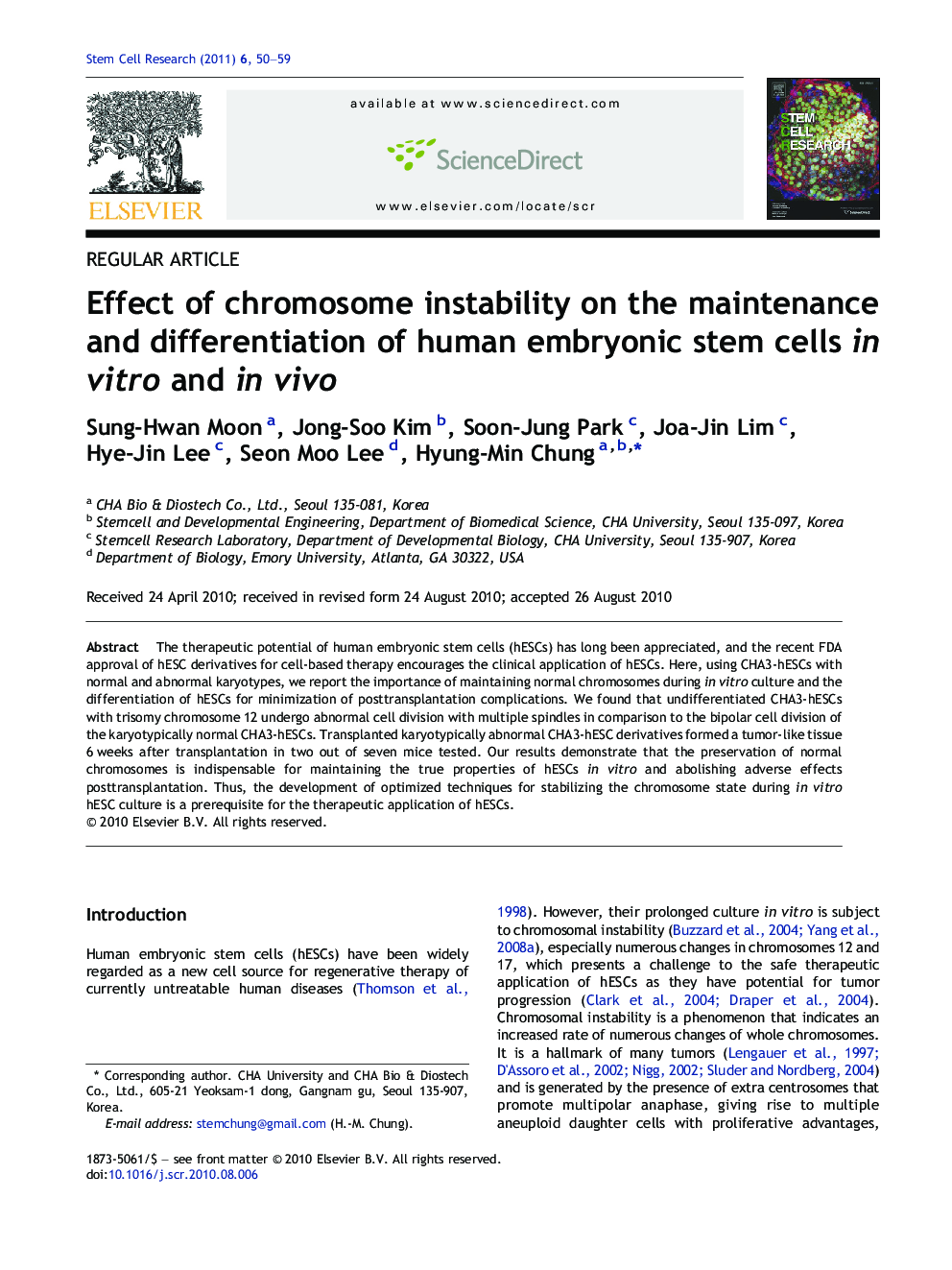| Article ID | Journal | Published Year | Pages | File Type |
|---|---|---|---|---|
| 10891348 | Stem Cell Research | 2011 | 10 Pages |
Abstract
The therapeutic potential of human embryonic stem cells (hESCs) has long been appreciated, and the recent FDA approval of hESC derivatives for cell-based therapy encourages the clinical application of hESCs. Here, using CHA3-hESCs with normal and abnormal karyotypes, we report the importance of maintaining normal chromosomes during in vitro culture and the differentiation of hESCs for minimization of posttransplantation complications. We found that undifferentiated CHA3-hESCs with trisomy chromosome 12 undergo abnormal cell division with multiple spindles in comparison to the bipolar cell division of the karyotypically normal CHA3-hESCs. Transplanted karyotypically abnormal CHA3-hESC derivatives formed a tumor-like tissue 6Â weeks after transplantation in two out of seven mice tested. Our results demonstrate that the preservation of normal chromosomes is indispensable for maintaining the true properties of hESCs in vitro and abolishing adverse effects posttransplantation. Thus, the development of optimized techniques for stabilizing the chromosome state during in vitro hESC culture is a prerequisite for the therapeutic application of hESCs.
Related Topics
Life Sciences
Biochemistry, Genetics and Molecular Biology
Biotechnology
Authors
Sung-Hwan Moon, Jong-Soo Kim, Soon-Jung Park, Joa-Jin Lim, Hye-Jin Lee, Seon Moo Lee, Hyung-Min Chung,
